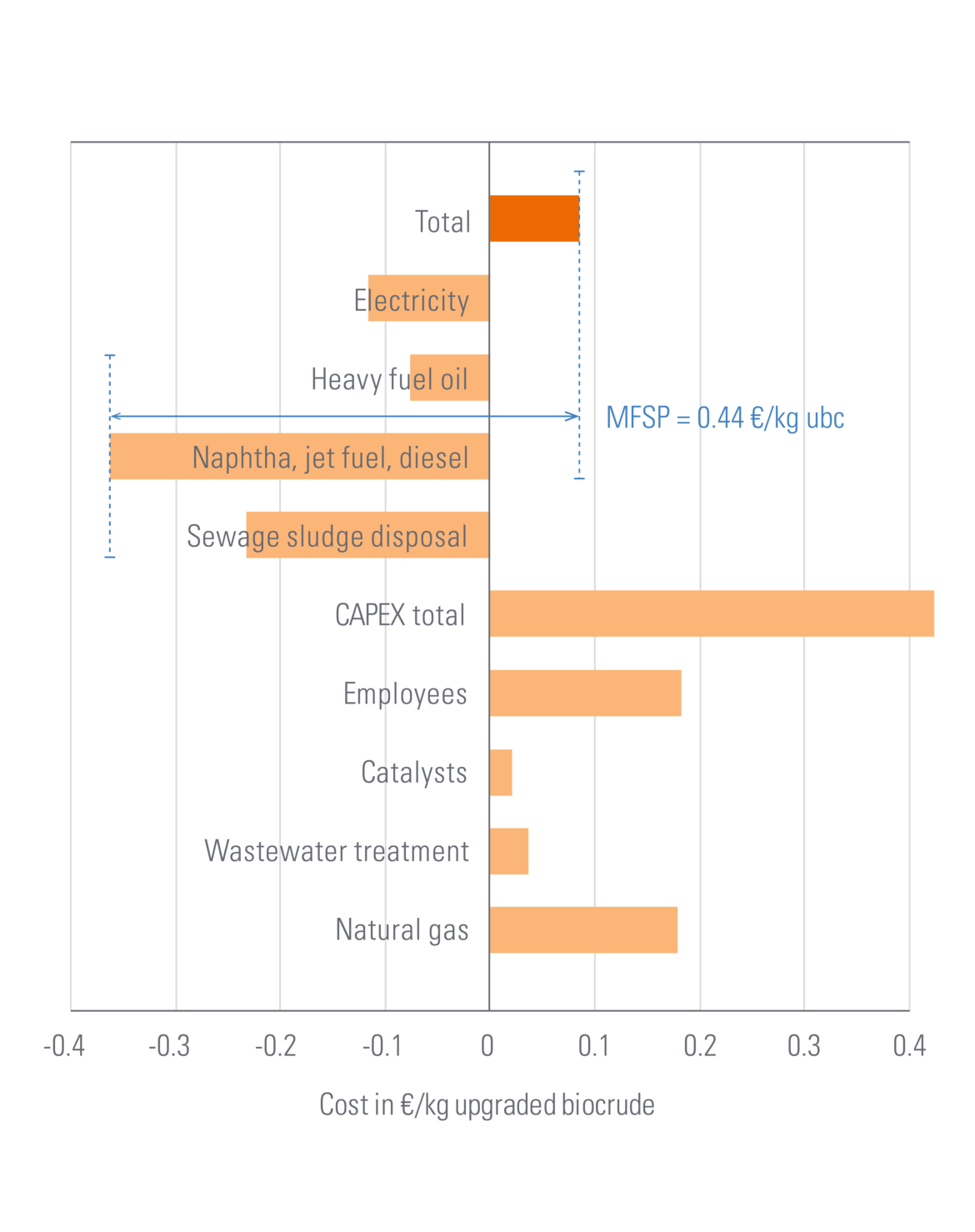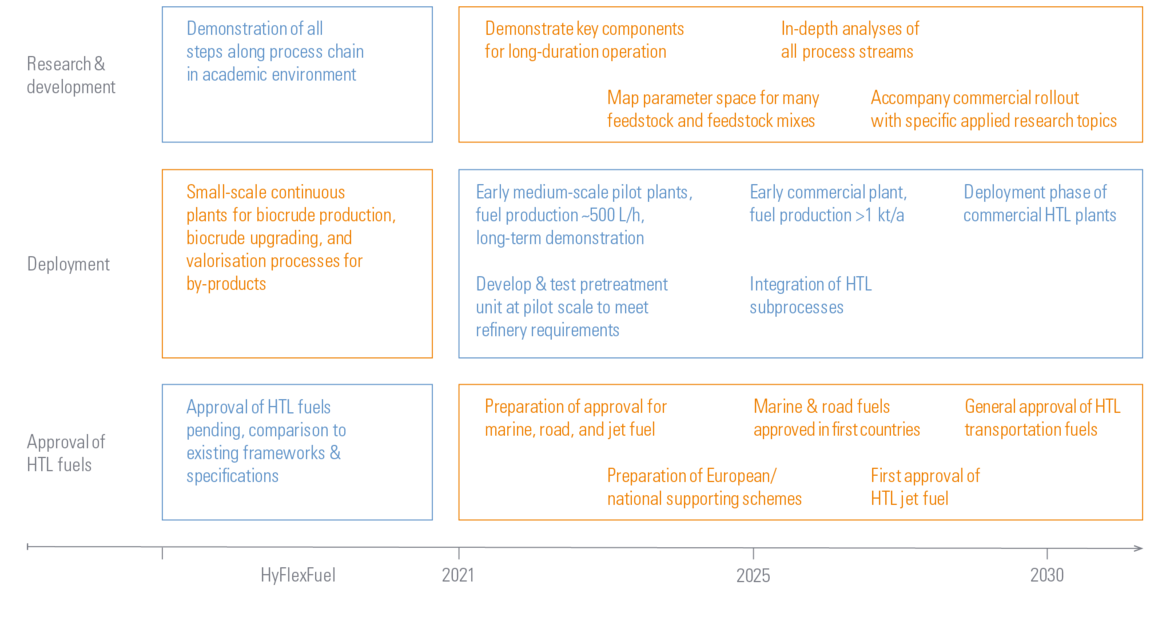Advanced biofuels can significantly contribute to achieving the climate targets of the aviation industry. Hydrothermal liquefaction (HTL) enables the conversion of a broad variety of organic feedstock into biocrude under high temperatures and pressures (T~350 °C, p~200 bar). The resulting biocrude can be further upgraded to a jet fuel product.
During the past years, Bauhaus Luftfahrt contributed to HTL research in the four-year EU project HyFlexFuel, which was successfully completed in autumn 2021. Within HyFlexFuel, Bauhaus Luftfahrt was responsible for the project coordination and the holistic evaluation of the production process via system analyses.
The results [ 1 , 2 ] show that HTL fuels might be produced at near-competitive cost. Under favourable conditions, production costs of about 0.50 €/kg were evaluated for the conversion of wet waste streams, such as sewage sludge. Thereby, it is assumed that additional revenue at a similar level as for current disposal practices, such as mono-incineration, can be generated for the thermal treatment of sewage sludge by HTL. Greenhouse gas emissions are reduced by between 60 % and 80 % compared to conventional jet fuel. A sensitivity analysis suggests that the climate impact can be further reduced through renewable process heat supply and by utilising green hydrogen for biocrude upgrading via hydrotreatment.
Along the commercialisation roadmap for HTL technologies, further research is required in the areas of integrating the process steps, crude oil processing, and fuel certification to finally achieve commercial maturity.




